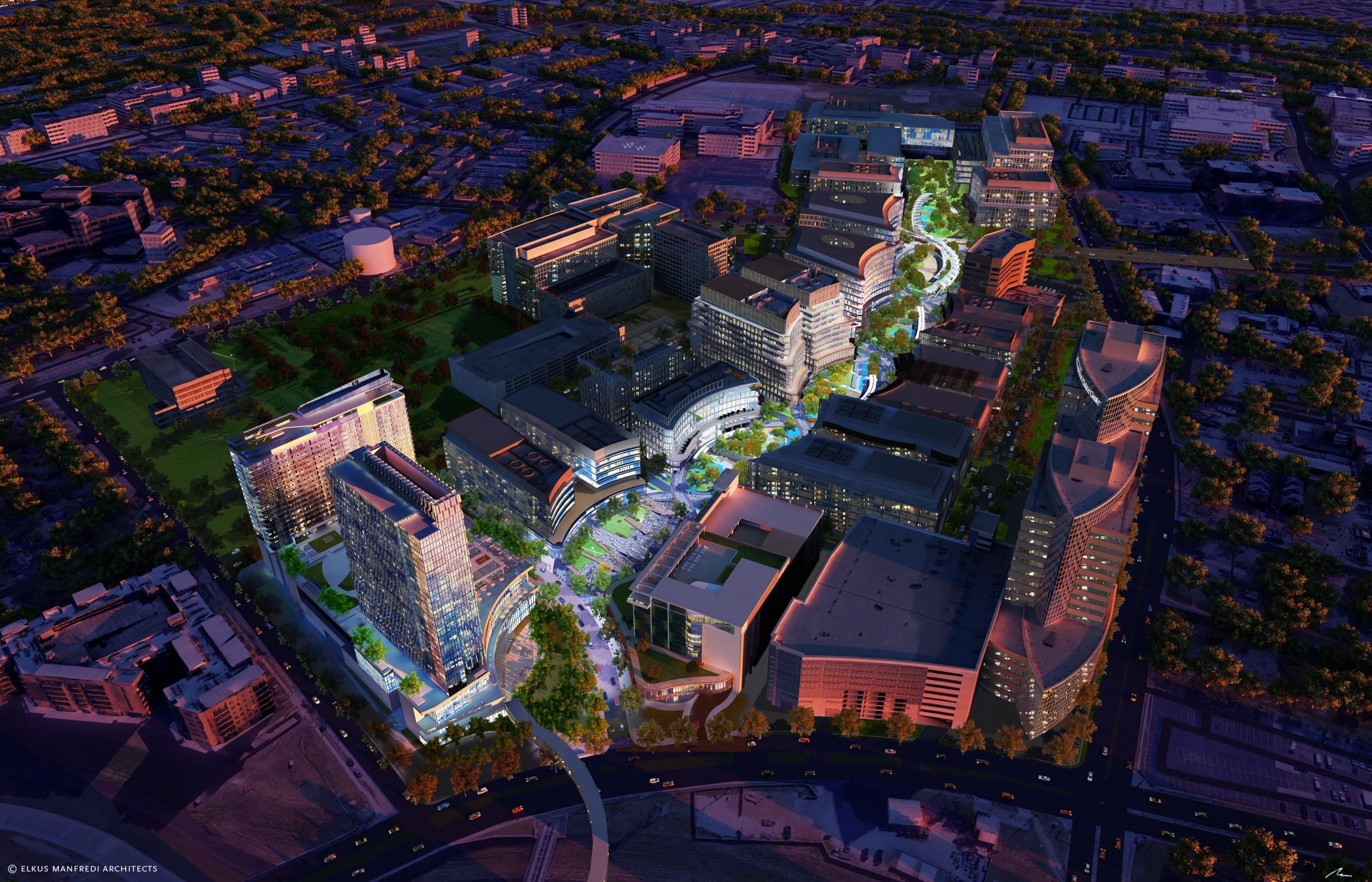Biomedical research campus TMC3, a long-anticipated 37-acre project adjacent to the world’s largest medical center, broke ground last year after raising $1.8 billion in financing.
Why it matters: The new multibuilding campus seeks to be an epicenter of biomedical research by promoting scientific collaboration. TMC3 doesn’t have the same land restrictions as the rest of the Texas Medical Center, meaning for-profit and nonprofit companies can work together on medical advances and other forms of scientific research.

The plans: The new biomedical research campus’s first phase includes 950,000 square feet of research space, a 521-room hotel with 650,000 square feet of conference space, a 350-unit residential tower and a mixed-use building with 50,000 square feet of retail. TMC3's master plan encompasses about 6 million square feet designed by Boston-based Elkus Manfredi Architects, a key player in shaping several of the top life sciences clusters in Massachusetts, and 18.7 acres of public space spread across five parks in the shape of a double helix cutting through the campus designed by landscape architect Mikyoung Kim.
What they're saying: “There's been an evolution of thinking and mindset of leadership across our medical center, where it used to be all very private: 'If we're over here, you're over there, stay over there,'" said William McKeon, Texas Medical Center’s president and CEO, in an interview with CoStar News. “Now they're realizing that the speed of discovery is through collaboration. It's through accidental collisions that you can actually design into a cluster today. The beauty of the TMC3 campus is designing this for all of our member institutions. We're having more and more of the institutions coming forward, saying, ‘We want to be part of the cluster.’”
The players: Beacon Capital Partners, a Boston-based real estate investment firm, and Braidwell, a new hedge fund launched by some major life sciences investors, invested in the project last year. Majestic Realty is developing the hotel, and Transwestern Development is part of the project team. Member institutions include the University of Texas M.D. Anderson Cancer Center, Texas A&M University Health Science Center and the University of Texas Health Science Center at Houston.
Going deeper: “Every year we have our institutions that come to the Texas Medical Center and ask for land. ‘We need 2 acres right here at TMC because we want to extend our research,’ or ‘We want to extend our clinical.’ And that's happened over the course of 76 years. That's what's unique about this. It's 1,400 acres of land that's only dedicated to research, medical care and discovery. And so that's why you don't see this in Austin or Boston or New York,” said McKeon.
CoStar's Impact Awards highlight the commercial real estate transactions and projects that have transformed their markets over the past year. The winners are chosen by independent panels of industry professionals who work in the markets they judge. A list of judges can be found here and the criteria for selecting winners can be found here.
